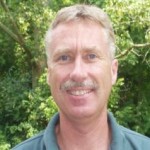
A Green MP since 2002, Metiria was elected Green Party Co-leader in 2009.
In a wide ranging and fascinating interview we talk to Metiria about her father, green politics, rude politicians, poverty, what a sustainable economy would look like and whether she would like to be the first co-Prime Minister of New Zealand Aotearoa.
Metiria’s focus is policy work that helps build a more fair society, as well as electoral law reform and children’s issues. She’s previously led campaigns to save our National Parks from mining, protect the Mokihinui River, and has fought for greater protection of marine animals and the marine environment. Metiria also advocates for implementation of Te Tiriti o Waitangi, restorative justice, and a quality public education system. With a law degree from Auckland, Metiria has previously worked as a lawyer at Simpson Grierson and as an advocate for the unemployed and beneficiaries.
When able to escape the world of politics, Metiria spends time with her family in Dunedin.
Shane’s number of the week:Â 90%
– there is a 90% increase in the risk of psychological illness when you experience food insecurity in New Zealand.
Sam’s joined up thinking:Â Earth Day – “mother earth is having her human rights recognised” but we’re a long way off an understanding of what this means (read more>>).





